Author Biographies 1
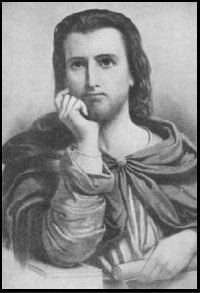 Peter Abelard
Peter Abelard
1079-1142
Peter Abelard (January 1, 1079-April 21, 1142) was a medieval French scholastic, theologian and pre-eminent logician.
Abelard went (c. 1100) to Paris to study under William of Champeaux at the school of Notre Dame and soon attacked the ultra-realist position of his master with such success that William was forced to modify his teaching. Abelard became master at Notre Dame but, when deprived of his place, set himself up (1112) at a school on Mont-Ste-Genevieve, just outside the city walls. Abelard’s fame as a dialectician attracted great numbers of students to Paris. This part of his career was cut short by his romance with Heloise, the learned niece of Fulbert, canon of Notre Dame, who had hired Abelard as her tutor.
After Heloise bore a son, a secret marriage was held to appease her uncle. Fulbert’s ill-treatment of Heloise led Abelard to remove her secretly to the convent at Argenteuil. Fulbert, who thought that Abelard planned to abandon her, had ruffians attack and emasculate him. Abelard sought refuge at Saint-Denis where he became a monk. In 1120 he left Saint-Denis to teach. At the instigation of his rivals, the Council of Soissons had his first theological work burned as heretical (1121). After a short imprisonment, he returned to Saint-Denis but fell out with the monks and built a hermitage near Troyes. To house the students who sought him out, he established a monastery, the Paraclete. When Abelard became abbot at Saint-Gildas-en-Rhuys, Brittany, he gave the Paraclete to Heloise, who became an abbess of a convent there.
St. Bernard of Clairvaux thought Abelard’s influence dangerous and secured his condemnation by the Council of Sens (1140). Abelard appealed to the pope, who upheld the council. Abelard submitted and retired to Cluny. He was buried at the Paraclete, as was Heloise; their bodies were later moved to Pere-Lachaise in Paris.
A theological Platonist, Abelard emphasized Aristotle’s dialectic method. His belief that the methods of logic could be applied to the truths of faith was in opposition to the mysticism of St. Bernard. He also opposed the extreme views of William of Champeaux and Roscelin on the problems of universals. His own solution, in which universals are considered as entities existent only in thought but with a basis in particulars, is called moderate realism and to some extent anticipates the conceptualism of St. Thomas Aquinas.
Abelard’s theological works include Sic et Non, consisting of scriptural and patristic passages arranged for and against various theological opinions, without any attempt to decide whether the affirmative or the negative opinion is correct or orthodox; Tractatus de Unitate et Trinitate Divina, which was condemned at the Council of Sens; Theologia Christiana, a second and enlarged edition of the Tractatus; Introductio in Theologiam (more correctly, Theologia); Dialogus inter Philosophum, Judaeum, et Christianum; Sententiae Petri Abaelardi, otherwise called Epitomi Theologiae Christianae, which is seemingly a compilation by Abelard’s pupils and several exegetical works hymns, sequences, etc.
Source: http://www.ccel.org/ccel/abelard
 Bibliography
Bibliography
Press your browser’s BACK button to return to the previous page.
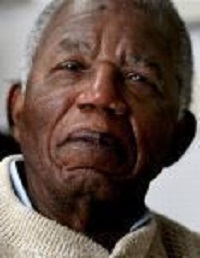 Chinua Achebe
Chinua Achebe
1930-2013
Albert Chinualumogu Achebe (November 16, 1930-March 21, 2013), popularly known as Chinua Achebe, was a Nigerian novelist, poet, professor and critic. He is best known for his first novel and magnum opus, Things Fall Apart (1959), which is the most widely read book in modern African literature.
Raised by Christian parents in the Igbo town of Ogidi in southeastern Nigeria, Achebe excelled at school and won a scholarship for undergraduate studies. He became fascinated with world religions and traditional African cultures, and began writing stories as a university student. After graduation, he worked for the Nigerian Broadcasting Service and soon moved to the metropolis of Lagos. He gained worldwide attention for Things Fall Apart in the late 1950s; his later novels include No Longer at Ease (1960), Arrow of God (1964), A Man of the People (1966) and Anthills of the Savannah (1987).
In 1975, his lecture, “An Image of Africa: Racism in Conrad’s ‘Heart of Darkness,’” became the focus of controversy for its criticism of Joseph Conrad as “a bloody racist” and was later published.
When the region of Biafra broke away from Nigeria in 1967, Achebe became a supporter of Biafran independence and acted as ambassador for the people of the new nation. The war ravaged the populace and, as starvation and violence took its toll, he appealed to the people of Europe and the Americas for aid. When the Nigerian government retook the region in 1970, he involved himself in political parties but soon resigned due to frustration over the corruption and elitism he witnessed. He lived in the United States for several years in the 1970s and returned to the U.S. in 1990 after a car accident left him partially disabled.
He also published a number of short stories, children’s books and essay collections. Since 2009, he was the David and Marianna Fisher University Professor and Professor of Africana Studies at Brown University in Providence, Rhode Island.
Source: http://en.wikipedia.org/wiki/Chinua_Achebe
 Bibliography
Bibliography
Press your browser’s BACK button to return to the previous page.
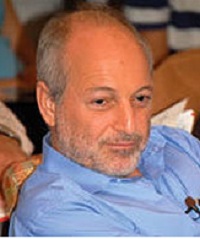 Andre Aciman
Andre Aciman
1950-
Andre Aciman (born in Alexandria, Egypt) is a writer and distinguished professor at the Graduate Center of City University of New York, teaching the history of literary theory and the works of Marcel Proust. His memoir, Out of Egypt (1995), won a Whiting Writers’ Award. He previously taught creative writing at New York University and French literature at Princeton University. In 2009 Aciman was Visiting Distinguished Writer at Wesleyan University.
Aciman was born in Egypt in a French-speaking home where family members also spoke Italian, Greek, Ladino and Arabic. His family were Jews of Turkish and Italian origin who settled in Alexandria, Egypt in 1905. Aciman moved with his family to Italy at the age of 15 and then to New York at 19.
Source: http://en.wikipedia.org/wiki/Andr%C3%A9_Aciman
 Bibliography
Bibliography
Press your browser’s BACK button to return to the previous page.
 Kathy Acker
Kathy Acker
1947-1997
Kathy Acker (nee Karen Lehmann; April 18, 1947-November 30, 1997) was an American experimental novelist, punk poet, playwright, essayist, postmodernist and sex-positive feminist writer.
The daughter of Donald and Claire (Weill) Lehman, a wealthy Jewish family, Kathy Acker was born in New York City on April 18. As a girl, Acker was expected to act with ladylike propriety in this oppressive, well-to-do environment, yet she was fascinated by pirates, a fascination that continued until the end of her life. She wanted to grow up to be a pirate, but she knew that only men could be pirates. Thus Acker experienced early the limitations of gender. However, she found that reading about pirates was a way of running away from home, and she turned to books as her reality. She associated reading and writing with bodily pleasure and remained a voracious reader throughout her life.
Acker took her last name from her first husband, Robert Acker; though named Karen, she was known as Kathy by her friends and family. She studied classics as an undergraduate at Brandeis University and aspired to write novels but moved to San Diego to further pursue her studies. Acker’s first work appeared in print as part of the burgeoning New York literary underground of the mid-1970s. The year 1984 saw her first British publication, a novel called Blood and Guts in High School. From here on Acker produced a considerable body of novels. She wrote pieces for a number of magazines and anthologies, and also had notable pieces printed in issues of RE/Search, Angel Exhaust and Rapid Eye. Toward the end of her life she had a measure of success in the conventional press – The Guardian newspaper published several of her articles, including an interview with the Spice Girls, which she submitted just a few months before her death.
In April 1996, Acker was diagnosed with breast cancer and had a double mastectomy. In January 1997 she wrote about her loss of faith in conventional medicine in a Guardian article, “The Gift of Disease.” In the article she explains that after unsuccessful surgery, which left her feeling physically mutilated and emotionally debilitated, she rejected the passivity of the patient in the medical mainstream and began to seek out the advice of nutritionists, acupuncturists, psychic healers and Chinese herbalists. She found appealing the claim that instead of being an object of knowledge, as in Western medicine, the patient becomes a seer, a seeker of wisdom, that illness becomes the teacher and the patient the student. A year and a half after pursuing several forms of alternative medicine in England and the United States, Acker died from complications of breast cancer in an alternative cancer clinic in Tijuana, Mexico.
Source: http://en.wikipedia.org/wiki/Kathy_Acker
 Bibliography
Bibliography
Press your browser’s BACK button to return to the previous page.
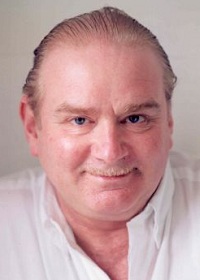 Peter Ackroyd
Peter Ackroyd
1949-
Peter Ackroyd (born October 5, 1949, East Acton, Middlesex) is an English biographer, novelist and critic with a particular interest in the history and culture of London. For his novels about English history and culture and his biographies of, among others, Charles Dickens, T.S. Eliot and Sir Thomas More, he won the Somerset Maugham Award and two Whitbread Awards. He was awarded a Commander of the Order of the British Empire in 2003.
Ackroyd was educated at St. Benedict’s, Ealing, and at Clare College, Cambridge, from which he graduated with a double first in English literature. In 1972, he was a Mellon Fellow at Yale University. The result of this fellowship was Notes for a New Culture, written when Ackroyd was only 22 and eventually published in 1976.
Ackroyd worked at The Spectator magazine between 1973 and 1977 and became joint managing editor in 1978. He worked as chief book reviewer for The Times and a regular broadcaster on radio. Since 1984 he is a Fellow of the Royal Society of Literature.
Ackroyd’s literary career began with poetry, including such works as “London Lickpenny” (1973) and “The Diversions of Purley” (1987). In 1982 he published “The Great Fire of London.”
One of Ackroyd’s best known works, London: The Biography, is an extensive and thorough discussion of London through the ages. In the sequence London: The Biography (2000), Albion: The Origins of the English Imagination (2002), and Thames: Sacred River (2007), Ackroyd has produced works of what he considers historical sociology. These books trace themes in London and English culture from the ancient past to the present, drawing again on his favored notion of almost spiritual lines of connection rooted in place and stretching across time.
His fascination with London literary and artistic figures is also displayed in the sequence of biographies he has produced of Ezra Pound (1980), T.S. Eliot (1984), Charles Dickens (1990), William Blake (1995), Thomas More (1998), Chaucer (2004), William Shakespeare (2005) and J.M.W. Turner.
From 2003 to 2005, Ackroyd wrote a six-book nonfiction series (Voyages Through Time) intended for readers as young as eight, his first work for children.
Source: http://en.wikipedia.org/wiki/Peter_Ackroyd
 Bibliography
Bibliography
Press your browser’s BACK button to return to the previous page.
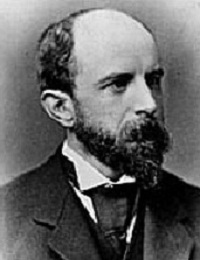 Henry Adams
Henry Adams
1838-1918
Born in Boston on February 16, 1838, Henry Adams grew up in an atmosphere of wealth and culture. His great-grandfather, John Adams, had been the United States’ second president. His grandfather, John Quincy Adams, had been the sixth. Adams’ father, Charles Francis Adams, was a historian. Charles would also serve his country as a congressman and a diplomat. Adams’ mother, Abigail Brown Brooks, was a Boston Brahmin, a daughter of one of the city’s wealthy, exclusive families.
As a boy, Henry Adams studied at an exclusive private school, but he also learned a great deal from his father. The family home included a library of some 18,000 books – the largest in Boston at the time. Later, at Harvard University, Henry studied broadly. His subjects included Greek and Roman literature, mathematics, government, botany, astronomy, physics and French. In 1858 Henry graduated from Harvard, just as his father, grandfather and great-grandfather had done before him.
After graduation, Adams traveled to Germany, where he began to study law at the University of Berlin. But when Abraham Lincoln appointed his father minister to England in 1861, Henry abandoned law school. He went to London, where for seven years he served as his father’s personal secretary.
Adams returned to the United States in 1868. He settled in Washington, D.C., where he began a career as a political journalist. His work began to appear in influential periodicals such as The Nation, The New York Evening Post and The North American Review. In his articles, Adams focused his razor-sharp wit on corruption in government and big business.
“I want to be advertised and the easiest way is to do something obnoxious and do it well,” Adams had once written. But political writing had neither made Adams famous nor eliminated government corruption. In 1870, after just two years in Washington, Adams returned to Boston. There, until 1877, he taught medieval history at Harvard. But politics still flowed through Adams’ veins. In 1870, the same year he started at Harvard, he also became editor of The North American Review, a job he held for six years.
As editor of one of America’s most influential journals, Adams continued to support government reform. He practiced his ideas as well as preached them. In 1872, he was among the Republicans who left their party to nominate the Democratic newspaper editor Horace Greeley for president. But Greeley’s defeat – and a look at politics from the inside – disappointed Adams. Disgusted with the political world, he began to concentrate on a career as a historian.
From 1877 to 1911, Adams wrote a number of history books, including biographies of Albert Gallatin, John Randolph and George Cabot Lodge; a nine-volume History of the United States; and a book of medieval history. He also wrote two novels, Democracy, An American Novel, which he published anonymously, and Esther, which he published under a pseudonym. But Adams’ greatest work was his autobiography, The Education of Henry Adams, which he printed privately in 1906 but did not release to the public.
In 1912, Adams suffered a serious stroke but managed to recover. He died in 1918, the same year that his autobiography was published and made generally available. In 1919, one year after its author’s death, The Education of Henry Adams was awarded the Pulitzer Prize.
Source: http://www.pbs.org/wgbh/americanexperience/features/biography/grant-adams/
 Bibliography
Bibliography
Press your browser’s BACK button to return to the previous page.
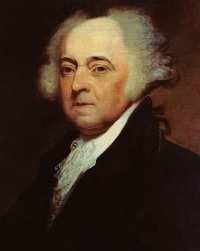 John Adams
John Adams
1735-1826
John Adams (October 30, 1735-July 4, 1826) was an American Founding Father, lawyer, statesman, diplomat and political theorist. A leading champion of independence in 1776, he was the second president of the United States (1797–1801). Hailing from New England, Adams, a prominent lawyer and public figure in Boston, was highly educated and represented Enlightenment values promoting republicanism. A Federalist, he was highly influential and one of the key Founding Fathers of the United States.
Adams came to prominence in the early stages of the American Revolution. As a delegate from Massachusetts to the Continental Congress, he played a leading role in persuading Congress to declare independence and assisted Thomas Jefferson in drafting the Declaration of Independence. As a diplomat in Europe, he was a major negotiator of the eventual peace treaty with Great Britain, and chiefly responsible for obtaining important loans from Amsterdam bankers. A political theorist and historian, Adams largely wrote the Massachusetts state constitution in 1780 that soon after ended slavery in Massachusetts, but was in Europe when the federal Constitution was drafted on similar principles later in the decade. One of his greatest roles was as a judge of character: In 1775, he nominated George Washington to be commander-in-chief; 25 years later, he nominated John Marshall to be Chief Justice of the United States.
Adams’ revolutionary credentials secured him two terms as George Washington’s vice president and his own election in 1796 as the second president. During his one term, he encountered ferocious attacks by the Jeffersonian Republicans, as well as the dominant faction in his own Federalist Party led by his bitter enemy, Alexander Hamilton. Adams signed the controversial Alien and Sedition Acts and built up the army and navy especially in the face of an undeclared naval war (called the “Quasi War”) with France, 1798-1800. The major accomplishment of his presidency was his peaceful resolution of the conflict in the face of Hamilton’s opposition.
In 1800, Adams was defeated for re-election by Jefferson and retired to Massachusetts. He and his wife, Abigail Adams, founded an accomplished family line of politicians, diplomats and historians now referred to as the Adams political family. Adams was the father of John Quincy Adams, the sixth president of the United States. His achievements have received greater recognition in modern times, though his contributions were not initially as celebrated as those of other Founders.
On July 4, 1826, the 50th anniversary of the adoption of the Declaration of Independence, Adams died at his home in Quincy. Told that it was the Fourth, he answered clearly, “It is a great day. It is a good day.” His last words have been reported as, “Thomas Jefferson survives.” Jefferson himself, however, had died hours before.
Source: http://en.wikipedia.org/wiki/John_Adams
 Bibliography
Bibliography
Press your browser’s BACK button to return to the previous page.
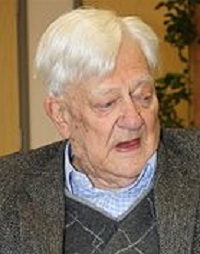 Richard Adams
Richard Adams
1920-2016
Richard George Adams (May 9, 1920-December 24, 2016) was an English novelist best known as the author of Watership Down. He studied modern history at university before serving in the British Army during World War II. He completed his studies after the war and joined the English Civil Service. In 1974, two years after Watership Down was published, Adams became a full-time author.
Adams was born on May 9, 1920 in Wash Common near Newbury, Berkshire, United Kingdom. He attended Horris Hill School from 1926-1933, and then Bradfield College from 1933-1938. In 1938, he went to Worcester College, Oxford, to read Modern History. In July 1940, shortly after the declaration of war between the UK and Germany, Adams was called up to join the British Army. He served in the Middle East and India but saw no action against either the Germans or the Japanese.
After being released from the army in 1946, Adams returned to Worcester College to continue his studies for a further two years. He took the degrees of Bachelor of Arts in 1948 and Master of Arts in 1953. After his BA graduation in 1948, Adams joined the British Civil Service and held the rank of Assistant Secretary to the Ministry of Housing and Local Government, later part of the Department of the Environment. It was during this period that he began writing fiction in his spare time.
Adams had originally begun telling the story of Watership Down to his two daughters and they insisted that he publish it as a book. It took two years to write. In 1972, after seven other publishers had turned down the manuscript for Watership Down, Rex Collings agreed to publish the work. The book gained international acclaim almost immediately and established Adams as one of the foremost contemporary English writers.
In 1974, following publication of his second novel, Shardik, he left the Civil Service to become a full-time author. He was elected a Fellow of the Royal Society of Literature in 1975.
Adams died on December 24, 2016 at the age of 96 in Oxford, England from complications of a blood disorder.
Source: http://en.wikipedia.org/wiki/Richard_Adams
 Bibliography
Bibliography
Press your browser’s BACK button to return to the previous page.
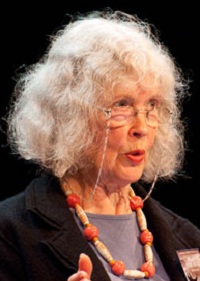 Fleur Adcock
Fleur Adcock
1934-
Poet Fleur Adcock was born in Auckland, New Zealand, on 10 February 1934, but spent much of her childhood, including the war years, in England. She studied Classics at Victoria University in Wellington and taught at the University of Otago, moving to London in 1963, where she worked as a librarian at the Foreign and Commonwealth Office.
She has held various literary fellowships, including a period at the Charlotte Mason College of Education, Ambleside (1977-78). Later she held the Northern Arts Fellowship at the Universities of Newcastle upon Tyne and Durham (1979-81), where she met the composer Gillian Whitehead with whom she collaborated on a song cycle libretto and later a full-length opera about Eleanor of Aquitaine. In 1984 she was Writing Fellow at the University of East Anglia. She has been writing full-time since 1981.
Her poetry has received numerous awards, many of them from her native New Zealand, and she won a Cholmondeley Award in 1976. She was awarded an OBE in 1996. A collected edition of Fleur Adcock’s poetry, Poems 1960-2000, was published in 2000, and she is a regular contributor to, as well as editor and translator of, poetry anthologies.
Fleur Adcock lives and works in Britain. She was awarded the Queen’s Medal for Poetry in 2006, and in 2008 was named Companion of the New Zealand Order of Merit for services to literature.
Source: https://en.wikipedia.org/wiki/Fleur_Adcock
 Bibliography
Bibliography
Press your browser’s BACK button to return to the previous page.
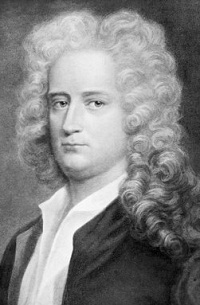 Joseph Addison
Joseph Addison
1672-1719
Joseph Addison (May 1, 1672-June 17, 1719) was an English essayist, poet, playwright and politician. He was a man of letters, eldest son of Lancelot Addison. His name is usually remembered alongside that of his long-standing friend, Richard Steele, with whom he founded The Spectator magazine.
Addison was born in Melton, Wiltshire, but soon after his birth his father, Lancelot Addison, was appointed Dean of Lichfield and the Addison family moved into the cathedral close. He was educated at Charterhouse School, where he first met Richard Steele, and at The Queen’s College, Oxford. He excelled in classics, being specially noted for his Latin verse, and became a Fellow of Magdalen College. In 1693, he addressed a poem to John Dryden, and his first major work, a book of the lives of English poets, was published in 1694. His translation of Virgil’s Georgics was published the same year.
In 1704, the government commissioned Addison to write a commemorative poem about the Battle of Blenheim, and he produced “The Campaign,” which gave such satisfaction that he was forthwith appointed a Commissioner of Appeals in Halifax’s government. His next literary venture was an account of his travels in Italy, which was followed by an opera libretto titled Rosamund.
In 1709, Steele began to bring out Tatler, to which Addison became almost immediately a contributor. Thereafter he (with Steele) started The Spectator, the first number of which appeared on March 1, 1711. This paper, which at first appeared daily, was kept up (with a break of about a year and a half when The Guardian took its place) until December 20, 1714.
In 1713, Addison’s tragedy, Cato, was produced and was received with great success. He followed this effort with a comedic play, The Drummer. His last undertaking was The Freeholder, a party paper, in 1715-16.
In 1718, Addison was forced to resign as secretary of state because of his poor health, but remained an MP until his death at Holland House, London on June 17, 1719, in his 48th year, and was buried in Westminster Abbey.
Source: http://en.wikipedia.org/wiki/Joseph_Addison
 Bibliography
Bibliography
Press your browser’s BACK button to return to the previous page.
 Chimamanda Ngozi Adichie
Chimamanda Ngozi Adichie
1977-
Chimamanda Ngozi Adichie (born September 15, 1977) is a Nigerian writer. Her family is of Igbo descent.
Born in the town of Enugu, she grew up in the university town of Nsukka in southeastern Nigeria, where the University of Nigeria is situated. While she was growing up, her father was a professor of statistics at the university and her mother worked there as the university registrar.
At the age of 19, Adichie left Nigeria and moved to the United States for college. After studying at Drexel University in Philadelphia, she transferred to Eastern Connecticut State University to live closer to her sister, who had a medical practice in Coventry (now in Mansfield, Connecticut). She continued studying communications and political science. She received a university degree from Eastern, where she graduated summa cum laude in 2001.
In 2003, she completed a master’s degree in creative writing at Johns Hopkins University in Baltimore. In 2008, she received a Master of Arts in African studies at Yale University.
Adichie had her first novel, Purple Hibiscus, published in 2003. It received excellent reviews and won a literary award for first books. Her second novel, Half of a Yellow Sun (2006), named after the flag of the short-lived nation of Biafra, is set before and during the Biafran War. Her third book, a collection of short stories titled The Thing Around Your Neck, was published in April 2009.
Adichie’s story “Ceiling” was included in the 2011 edition of The Best American Short Stories.
Source: http://en.wikipedia.org/wiki/Chimamanda_Ngozi_Adichie
 Bibliography
Bibliography
Press your browser’s BACK button to return to the previous page.
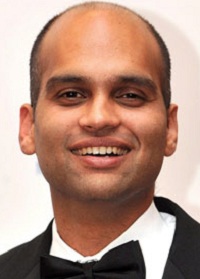 Aravind Adiga
Aravind Adiga
1974-
Aravind Adiga (born 23 October 1974) is an Indian journalist and author. His debut novel, The White Tiger, won the 2008 Man Booker Prize.
Aravind Adiga was born in Madras (now Chennai) to Dr. K. Madhava Adiga and Usha Adiga, Kannadigas both of whom hailed from Mangalore. His paternal grandfather was Late K. Suryanarayana Adiga, former chairman of Karnataka bank. He grew up in Mangalore and studied at Canara High School, then at St. Aloysius High School, where he completed his SSLC in 1990. He secured first rank in the state in SSLC. After emigrating to Sydney, Australia, with his family, he studied at James Ruse Agricultural High School. He studied English literature at Columbia College, Columbia University in New York, where he studied with Simon Schama and graduated as salutatorian in 1997. He also studied at Magdalen College, Oxford, where one of his tutors was Hermione Lee.
Adiga began his journalistic career as a financial journalist, interning at The Financial Times. With pieces published in The Financial Times and Money, he covered the stock market and investment banking, interviewing, among others, Donald Trump. His review of previous Booker Prize winner Peter Carey’s book, Oscar and Lucinda, appeared in The Second Circle, an online literary review. He was subsequently hired by Time magazine, where he remained a South Asia correspondent for three years before going freelance. During his freelance period, he wrote The White Tiger. He currently lives in Mumbai, India.
Source: http://en.wikipedia.org/wiki/Aravind_Adiga
 Bibliography
Bibliography
Press your browser’s BACK button to return to the previous page.
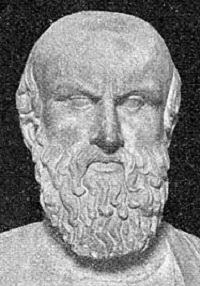 Aeschylus
Aeschylus
c. 525/524 BC-c. 456/455 BC
Aeschylus (c. 525/524 BC-c. 456/455 BC) was the first of the three ancient Greek tragedians whose work has survived, the others being Sophocles and Euripides, and is often described as the father of tragedy.
At least one of Aeschylus’ works was influenced by the Persian invasion of Greece, which took place during his lifetime. This play, The Persians, is a source of information about this period in Greek history.
There are no reliable sources for the life of Aeschylus. He was said to have been born in c. 525 BC in Eleusis, a small town about 27 kilometers northwest of Athens, which is nestled in the fertile valleys of western Attica, though the date is most likely based on counting back 40 years from his first victory in the Great Dionysia. His family was wealthy and well established; his father, Euphorion, was a member of the Eupatridae, the ancient nobility of Attica. As a youth he worked at a vineyard until, according to the 2nd-century AD geographer Pausanias, the god Dionysus visited him in his sleep and commanded him to turn his attention to the nascent art of tragedy. As soon as he woke from the dream, the young Aeschylus began writing a tragedy and his first performance took place in 499 BC, when he was only 26 years old.
Aeschylus travelled to Sicily once or twice in the 470s BC, having been invited by Hiero I of Syracuse, a major Greek city on the eastern side of the island; and during one of these trips he produced The Women of Aetna.
In 458 BC, he returned to Sicily for the last time, visiting the city of Gela where he died in 456 or 455 BC. It is claimed that he was killed by a tortoise that fell out of the sky when dropped by an eagle; however, this story is very likely apocryphal. Aeschylus’ work was so respected by the Athenians that, after his death, his were the only tragedies allowed to be restaged in subsequent competitions.
Source: http://en.wikipedia.org/wiki/Aeschylus
 Bibliography
Bibliography
Press your browser’s BACK button to return to the previous page.
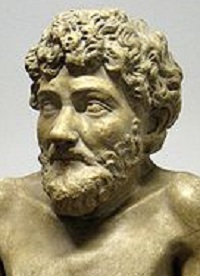 Aesop
Aesop
620-560 BC
Aesop (also spelled Asop or Esop; 620-560 BC) is known only for the genre of fables ascribed to him. The various collections that go under the rubric “Aesop’s Fables” are still taught as moral lessons and used as subjects for various entertainments, especially children’s plays and cartoons.
Most of what are known as Aesopic fables is a compilation of tales from various sources, many of which originated with authors who lived long before Aesop. Socrates was said by Plato in The Phaedo to have spent his time turning Aesop’s Fables into verse while he was in prison. Demetrius Phalereus, another Greek philosopher, made the first collection of these fables around 300 BC. This was later translated into Latin by Phaedrus, a slave himself, around 25 BC. The fables from these two collections were soon brought together and were eventually retranslated into Greek by Babrius around A.D. 230. Many additional fables were included, and the collection was in turn translated to Arabic and Hebrew, further enriched by additional fables from these cultures.
Little is known about Aesop’s origins. The place of Aesop’s birth is disputed: Amorium, Phrygia, Egypt, Ethiopia, Samos, Athens, Sardis, Thrace and many others have been suggested. The life of Aesop himself is shrouded in obscurity. He is said to have lived as a slave in Samos around 550 BC.
According to the sparse information gathered about him from references to him in several Greek works, Aesop was a slave for someone called Xanthus, who resided on the island of Samos. Aesop must have been freed, for he conducted the public defense of a certain Samian demagogue (Aristotle, Rhetoric, ii. 20). He subsequently lived at the court of Croesus, where he met Solon, and dined in the company of the Seven Sages of Greece with Periander at Corinth. During the reign of Peisistratus he was said to have visited Athens, where he told the fable of “The Frogs Who Desired a King” to dissuade the citizens from attempting to depose Peisistratus for another ruler.
According to the historian Herodotus, Aesop met with a violent death at the hands of the inhabitants of Delphi, who pushed him off a cliff, though the cause was not stated. Various explanations were made by later writers, such as his insulting sarcasms, the embezzlement of money entrusted to him by Croesus for distribution at Delphi, and his alleged sacrilege of a silver cup. A pestilence that ensued was blamed on his execution, and the Delphians declared their willingness to make compensation which, in default of a nearer connection, was claimed by Iadmon, grandson of Aesop’s former master.
Source: http://en.wikipedia.org/wiki/Aesop
 Bibliography
Bibliography
Press your browser’s BACK button to return to the previous page.
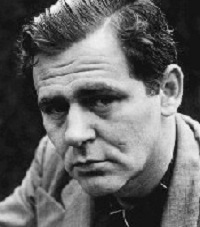 James Agee
James Agee
1909-1955
James Rufus Agee (November 27, 1909-May 16, 1955) was an American author, journalist, poet, screenwriter and film critic. In the 1940s, he was one of the most influential film critics in the U.S. His autobiographical novel, A Death in the Family (1957), won the author a posthumous 1958 Pulitzer Prize.
Agee was born in Knoxville, Tennessee, at Highland Avenue and 15th Street in what is now the Fort Sanders neighborhood to Hugh James Agee and Laura Whitman Tyler. When Agee was six, his father was killed in an automobile accident. From the age of seven, Agee and his younger sister, Emma, were educated in boarding schools. The most influential of these was located near his mother’s summer cottage two miles from Sewanee, Tennessee. Saint Andrew’s School for Mountain Boys was run by Episcopal monks affiliated with the Order of the Holy Cross. It was there that Agee’s lifelong friendship with Episcopal priest Father James Harold Flye and his wife began in 1919. As Agee’s close friend and spiritual confidant, Flye received many of Agee’s most revealing letters.
Agee’s mother married Father Erskind Wright in 1924 and the two moved to Rockland, Maine. Agee went to Knoxville High School for the 1924-1925 school year, then traveled with Father Flye to Europe in the summer, when Agee was 16. On their return, Agee transferred to a boarding school in New Hampshire, entering the class of 1928 at Phillips Exeter Academy. Soon after, he began a correspondence with Dwight MacDonald.
At Phillips Exeter, Agee was president of The Lantern Club and editor of The Monthly where his first short stories, plays, poetry and articles were published. Despite barely passing many of his high school courses, Agee was admitted to Harvard University’s class of 1932. There Agee attended classes taught by Robert Hillyer and I.A. Richards; one of his classmates was the future poet and critic Robert Fitzgerald, with whom he would eventually work at Time. Agee was editor-in-chief of The Harvard Advocate and delivered the class ode at his commencement.
In 1951 in Santa Barbara, Agee, a hard drinker and chain-smoker, suffered the first two in a series of heart attacks. Four years later, on May 16, 1955, Agee was in New York City when he suffered a fatal second heart attack. Agee, 45, died in a taxi cab en route to a doctor’s appointment, two days before the anniversary of his father’s death. He was buried on a farm he owned at Hillsdale, New York, a property still held by his descendants.
Source: http://en.wikipedia.org/wiki/James_Agee
 Bibliography
Bibliography
Press your browser’s BACK button to return to the previous page.
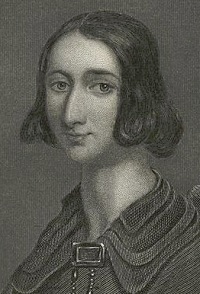 Grace Aguilar
Grace Aguilar
1816-1847
Grace Aguilar (June 2, 1816-September 16, 1847) was an English novelist and writer of Jewish history and religion. She was delicate from childhood and early showed great interest in history, especially Jewish history. The death of her father threw her on her own resources.
After a few dramas and poems, she published in the United States in 1842 Spirit of Judaism, in defense of her faith and its professors, and in 1845 The Jewish Faith and The Women of Israel. She is, however, best known by her novels, of which the chief are Home Influence (1847) and A Mother’s Recompense (1850). Her health gave way in 1847 and she died in that year at Frankfurt.
Her other works include Magic Wreath and Vale of Cedars (1850).
Source: http://en.wikipedia.org/wiki/Grace_Aguilar
 Bibliography
Bibliography
Press your browser’s BACK button to return to the previous page.
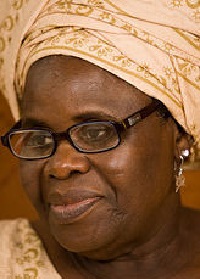 Ama Ata Aidoo
Ama Ata Aidoo
1942-2023
Professor Ama Ata Aidoo, nee Christina Ama Aidoo (born March 23, 1942, Saltpond) was a Ghanaian author and playwright.
She grew up in a Fante royal household, the daughter of Nana Yaw Fama, chief of Abeadzi Kyiakor, and Maame Abasema. She was sent by her father to the Wesley Girls’ High School in Cape Coast from 1961 to 1964. The headmistress of Wesley Girls bought Aidoo her first typewriter. After leaving high school, she enrolled at the University of Ghana in Legon and received her bachelor of arts in English as well as writing her first play, The Dilemma of a Ghost, in 1964. The play was published by Longman the following year, making Aidoo the first published African woman dramatist.
She worked in the United States, where she held a fellowship in creative writing at Stanford University. She also served as a research fellow at the Institute of African Studies, University of Ghana, and as a Lecturer in English at the University of Cape Coast, eventually rising there to the position of Professor.
Aside from her literary career, Aidoo was appointed Minister of Education under the Provisional National Defence Council in 1982. She resigned after 18 months. She also spent a great deal of time teaching and living abroad. She lived in America, Britain, Germany and Zimbabwe. She was also a Visiting Professor in the Africana Studies Department at Brown University.
Aidoo’s works of fiction particularly deal with the tension between Western and African world views. Many of her protagonists are women who defy the stereotypical women’s roles of their time. Her novel, Changes, won the 1992 Commonwealth Writers’ Prize for Best Book (Africa). She was also an accomplished poet and wrote several children’s books.
Aidoo died on May 31, 2023, at the age of 81.
Source: http://en.wikipedia.org/wiki/Ama_Ata_Aidoo
 Bibliography
Bibliography
Press your browser’s BACK button to return to the previous page.
 Conrad Aiken
Conrad Aiken
1889-1973
Conrad Potter Aiken (August 5, 1889-August 17, 1973) was an American novelist and poet whose work includes poetry, short stories, novels and an autobiography.
Aiken was born in Savannah, Georgia. When he was 11 years of age, his physician father killed his mother, then himself. According to his own writings, Aiken found the bodies of his parents. He was raised by his great-great-aunt in Massachusetts. Aiken was educated at private schools and at Middlesex School in Concord, Massachusetts, then at Harvard University, where he edited The Advocate with T.S. Eliot, who became a lifelong friend and associate.
Aiken’s earliest poetry was written partly under the influence of a beloved teacher, the philosopher George Santayana. This relation shaped Aiken as a poet, who was deeply musical in his approach and, at the same time, philosophical in seeking answers to his own problems and the problems of the modern world.
Aiken was deeply influenced by symbolism, especially in his earlier works. In 1930, he received the Pulitzer Prize for Poetry for his Selected Poems. Many of his writings had psychological themes. He wrote the widely anthologized short story, “Silent Snow, Secret Snow” (1934). His collections of verse include Earth Triumphant (1911), The Charnel Rose (1918) and In the Hanging Gardens (1933). His poem, “Music I Heard,” has been set to music by a number of composers, including Leonard Bernstein and Henry Cowell.
Aiken wrote or edited more than 50 books, the first of which was published in 1914, two years after his graduation from Harvard. His work includes novels, short stories (The Collected Short Stories appeared in 1961), criticism, autobiography and, most important of all, poetry. He was awarded the National Medal for Literature, the Gold Medal for Poetry from the National Institute of Arts and Letters, the Pulitzer Prize, the Bollingen Prize and the National Book Award. He was awarded a Guggenheim Fellowship, taught briefly at Harvard and served as Consultant in Poetry for the Library of Congress from 1950 to 1952. He was also largely responsible for establishing Emily Dickinson’s reputation as a major American poet.
After 1960, when his work was rediscovered by readers and critics, a new view of Aiken emerged – one that emphasized his psychological problems, along with his continuing study of Sigmund Freud, Carl G. Jung and other depth psychologists. Two of his five novels deal with depth psychology.
Conrad and his family with Jessie McDonald lived in England, where his third child was born, from 1921 to the beginning of World War II. In 1923, he acted as a witness at the marriage of his friend, the poet W.H. Davies. In 1950, he became Poet Laureate Consultant in Poetry to the Library of Congress, more commonly known as Poet Laureate of the United States.
Aiken returned to Savannah for the last 11 years of his life. His tomb, located in Bonaventure Cemetery on the banks of the Wilmington River, was made famous by its mention in Midnight in the Garden of Good and Evil, the bestselling book by John Berendt. According to local legend, Aiken wished to have his tombstone fashioned in the shape of a bench as an invitation to visitors to stop and enjoy a martini at his grave. Its inscriptions read, “Give my love to the world” and “Cosmos Mariner – Destination Unknown.”
Source: http://en.wikipedia.org/wiki/Conrad_Aiken#Selected_works
 Bibliography
Bibliography
Press your browser’s BACK button to return to the previous page.
 William Harrison Ainsworth
William Harrison Ainsworth
1805-1882
William Harrison Ainsworth (February 4, 1805-January 3, 1882) was an English historical novelist born in Manchester. He trained as a lawyer, but the legal profession held no attraction for him. While completing his legal studies in London he met the publisher John Ebers, at that time manager of the King’s Theatre, Haymarket. Ebers introduced Ainsworth to literary and dramatic circles, and to his daughter, who became Ainsworth’s wife.
Ainsworth briefly tried the publishing business, but soon gave it up and devoted himself to journalism and literature. His first success as a writer came with Rookwood in 1834. A stream of 39 novels followed, the last appearing in 1881.
Ainsworth died in Reigate on 3 January 1882.
Source: http://en.wikipedia.org/wiki/William_Harrison_Ainsworth
 Bibliography
Bibliography
Press your browser’s BACK button to return to the previous page.
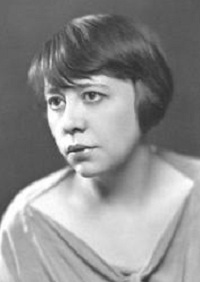 Zoe Akins
Zoe Akins
1886-1958
Zoe Akins (October 30, 1886-October 29, 1958) was an American playwright, poet and author. Born in Humansville, Missouri, Akins was educated in Illinois and later in St. Louis, where she began her writing career. While living in the city, she wrote poetry and criticism for various magazines and newspapers.
Her first major dramatic work was Papa, written in 1914. The comedy failed but she continued to write. She followed early failure with The Magical City and Declassee, two plays that were moderately successful.
During this time several of her early plays were adapted for the screen. These adaptations were mostly failures, released as silent films in a time when the industry was transitioning to sound. Eventually, Akins found a small measure of fame with the play, The Greeks Had a Word for It, produced in 1930.
In the early 1930s, Akins became more active in film, writing several screenplays as well as licensing minor adaptations of her work. Two highlights of this period are the films, Sarah and Son (1930) and Morning Glory (1933), the latter film remade as Stage Struck. Finally, Akins received recognition. In 1935, she was awarded the Pulitzer Prize for Drama for her dramatization of Edith Wharton’s The Old Maid, a melodrama set in New York City and written in five episodes stretching across time from 1839 to 1854. Akins also adapted the Alexandre Dumas novel, La dame aux camellias, which was adapted into the film Camille in 1936.
To Akins’ surprise, she was thrust into notoriety again in 1953 when Jean Negulesco directed an adaptation of The Greeks Had a Word for It. The film, titled How to Marry a Millionaire, became a box office sensation and helped launch the career of its star, Marilyn Monroe.
Monroe’s role in the Akins’ play helped the rising star become a cultural icon, and encouraged Akins to pursue a short stint as a writer for several television variety programs.
Source: http://en.wikipedia.org/wiki/Zo%C3%AB_Akins
 Bibliography
Bibliography
Press your browser’s BACK button to return to the previous page.
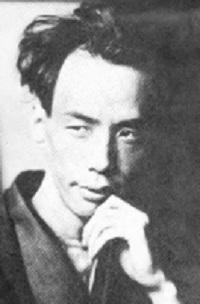 Ryunosuke Akutagawa
Ryunosuke Akutagawa
1892-1927
Ryunosuke Akutagawa (March 1, 1892-July 24, 1927) was a Japanese writer active in the Taisho period in Japan. He is regarded as the “Father of the Japanese short story” and Japan’s premier literary award, the Akutagawa Prize, is named for him.
Ryunosuke Akutagawa was born in the Kyabashi district of Tokyo. He began writing after entering Tokyo Imperial University in 1913, where he studied English literature. After graduation, he taught briefly at the Naval Engineering School in Yokosuka, Kanagawa, as an English language instructor, before deciding to devote his full efforts to writing.
Akutagawa published his first short story, “Rashomon,” in 1915 in the literary magazine Teikoku Bungaku (“Imperial Literature”) while still a student. It was also at this time that he started writing haiku under the haigo (or pen-name) Gaki.
This led to “Hana” (“The Nose,” 1916), which was published in Shinshicho. Akutagawa followed with a series of short stories set in Heian period, Edo period or early Meiji period Japan. These stories reinterpreted classical works and historical incidents.
Akutagawa was a strong opponent of naturalism. He published “Mikan” (“Mandarin Oranges,” 1919) and “Aki” (“Autumn,” 1920), which have more modern settings. In 1921, Akutagawa interrupted his writing career to spend four months in China as a reporter for The Osaka Mainichi Shinbun. The trip was stressful and he suffered from various illnesses, from which his health would never recover. Shortly after his return he published “Yabu no naka” (“In a Grove,” 1922).
The final phase of Akutagawa’s literary career was marked by his deteriorating physical and mental health. Much of his work during this period is distinctly autobiographical, some even taken directly from his diaries. His works during this period include Daidoji Shinsuke no hansei (The Early Life of Daidoji Shinsuke, 1925) and Tenkibo (Death Register, 1926).
Akutagawa’s final works include Kappa (1927), “Haguruma” (“Spinning Gears,” 1927), “Aru aho no issho” (“A Fool’s Life”) and the “Bungeiteki na, amari ni bungeiteki na” (“Literary, Much Too Literary,” 1927).
Toward the end of his life, Akutagawa began suffering from visual hallucinations and nervousness over fear that he had inherited his mother’s mental disorder. In 1927, he committed suicide by taking an overdose of Veronal. He was 35 years old.
Source: http://en.wikipedia.org/wiki/Ry%C5%ABnosuke_Akutagawa
 Bibliography
Bibliography
Press your browser’s BACK button to return to the previous page.
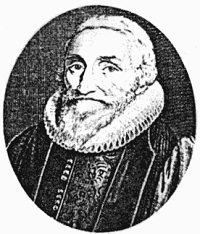 William Alabaster
William Alabaster
1567-1640
William Alabaster, or Alablaster, was born at Hadleigh, Suffolk in 1567. He was educated at Hadleigh grammar school, Westminster School and Trinity College, Cambridge, which he entered as a scholar in 1584. He took his B.A. in 1587 and M.A. in 1591. In 1592, he was incorporated into the University of Oxford.
While at Cambridge, Alabaster wrote Roxana, a Senecan tragedy in Latin, in 1592. It was performed at Trinity soon afterward to great enthusiasm. Forty years after its first performance, it was still esteemed highly enough to warrant an unauthorized publication in 1632. Full of errors, this induced Alabaster to publish an authorized edition later in the same year.
After the success of Roxana, Alabaster turned to poetical pursuits. He began an epic poem in Latin, “Eliseis” (or “Elisaeis”), which glorified Elizabeth I. It was not published in his lifetime, but the manuscript was widely circulated.
In 1596, Alabaster accompanied the Earl of Essex as chaplain on the expedition to Cadiz. Shortly after, he converted to Catholicism and attempted to convert Essex. Upon his return to England, he was briefly imprisoned in the Clink (a prison in Southwark). As was typical of the times, Alabaster renounced his Catholicism and returned to Anglicanism.
Following his reconversion, Alabaster gained favor with King James. He was created Doctor of Divinity at Cambridge by royal command in 1614, made a prebendary of St. Paul’s and given the living of Therfield, Hertfordshire. He was also admitted to Gray’s Inn in 1618 and acted as a chaplain to the king.
Alabaster began a series of mystical and cabbalistic writings with Tractatus in Revelationem Jesu Christi modo Cabalistico explicatam in 1602. This was followed in 1607 by Apparatus in Revelationem Jesu Christi. He published further theological works, including Tractatus de Bestia Apocaliptica (1621) and Spiraculum Tubarum, n.d. Ecce Sponsus Venit (1633).
In 1637, Alabaster published his Lexicon Pentaglotton Hebraicum, a work that had occupied him for many years and which was received with accolades from other scholars. Alabaster also wrote metaphysical devotional poems in Latin and in English, few of which survive, and which were not printed in his lifetime.
He died in his 74th year, in April 1640.
Source: http://www.luminarium.org/sevenlit/alabaster/alabasterbio.htm
 Bibliography
Bibliography
Press your browser’s BACK button to return to the previous page.
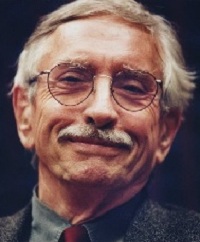 Edward Albee
Edward Albee
1928-2016
Edward Franklin Albee III (born March 12, 1928-died September 16, 2016) was an American playwright best known for The Zoo Story (1958), The Sandbox (1959), Who’s Afraid of Virginia Woolf? (1962) and a rewrite of the book for the unsuccessful musical version of Truman Capote’s Breakfast at Tiffany’s (1966). Albee continued to experiment in new works, such as The Goat: or Who Is Sylvia? (2002).
According to Magill’s Survey of American Literature (2007), Albee was born somewhere in Virginia. He was adopted two weeks later and taken to Larchmont, New York, in Westchester County, where he grew up. Albee’s adoptive father, Reed A. Albee, the wealthy son of vaudeville magnate Edward Franklin Albee II, owned several theaters. Here Edward first gained familiarity with the theatre as a child.
Albee attended the Clinton High School, then the Lawrenceville School in New Jersey, from which he was expelled. He then was sent to Valley Forge Military Academy in Wayne, Pennsylvania, where he was dismissed in less than a year. He enrolled at The Choate School (now Choate Rosemary Hall) in Wallingford, Connecticut, graduating in 1946. His formal education continued at Trinity College in Hartford, Connecticut, where he was expelled in 1947 for skipping classes and refusing to attend compulsory chapel.
Albee moved into New York’s Greenwich Village, where he supported himself with odd jobs while learning to write plays. His first play, The Zoo Story, was first staged in Berlin. The less-than-diligent student later dedicated much of his time to promoting American university theatre. He most recently was a distinguished professor at the University of Houston, where he taught an exclusive playwriting course.
Source: http://en.wikipedia.org/wiki/Edward_Albee
 Bibliography
Bibliography
Press your browser’s BACK button to return to the previous page.
 Mitch Albom
Mitch Albom
1958-
Mitchell David “Mitch” Albom (born May 23, 1958) is an American best-selling author, journalist, screenwriter, dramatist, radio and television broadcaster and musician. His books have sold more than 30 million copies worldwide. Having achieved national recognition for his sports writing in the earlier part of his career, he is perhaps best known for the inspirational stories and themes that weave through his books, plays and films. He is also well known for his philanthropic work in Detroit, Michigan, where he founded four charities.
Albom was born in Passaic, New Jersey, and briefly lived in Buffalo, New York, before moving back to Haddon Township, New Jersey, as a child, where he attended a synagogue led by Rabbi Albert L. Lewis, the subject of his book, Have a Little Faith. He resided in Oaklyn, New Jersey.
After attending high schools in Southern New Jersey and Philadelphia, including Akiba Hebrew Academy in Lower Merion, Albom went on to Brandeis University in Waltham, Massachusetts, to earn a bachelor’s degree in sociology. Pursuing his dream to become a musician, he worked after graduation for several years in nightclubs in the U.S. and Europe. He discovered an aptitude for writing and eventually returned to graduate school, earning a master’s degree from Columbia University’s Graduate School of Journalism, followed by an MBA from Columbia University’s Graduate School of Business.
In 1995, he married Janine Sabino. They live in suburban Detroit, Michigan.
Source: http://en.wikipedia.org/wiki/Mitch_Albom
 Bibliography
Bibliography
Press your browser’s BACK button to return to the previous page.
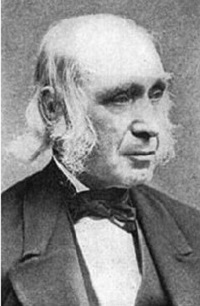 Amos Bronson Alcott
Amos Bronson Alcott
1799-1888
Amos Bronson Alcott (November 29, 1799-March 4, 1888) was an American teacher, writer and philosopher who left a legacy of forward-thinking social ideas and whose status as a well-publicized figure from the 1830s to the 1880s stemmed from his founding of two short-lived projects, an unconventional school and a utopian community known as “Fruitlands,” as well as from his association with the philosophy of Transcendentalism and from the celebrity accruing to his daughter, Little Women author Louisa May Alcott.
A native New Englander, Amos Bronson Alcott was born in the town of Wolcott in Connecticut’s New Haven County. His parents were Joseph Chatfield Alcott and Anna Alcott (nee Bronson). Alcott taught himself to read and was self-educated. Before reaching his 15th birthday in 1814, he was already earning a living by working in a clock factory in the nearby town of Plymouth. He left home at 17 and, for a few years, was a salesman in the American South, peddling books and merchandise. Returning to Connecticut in his early 20s, he was working, by 1823, as a schoolteacher in Bristol and subsequently conducted schools in Cheshire during 1825-27, again in Bristol in 1827-28, then in Boston during 1828-30 then, in 1831-33, Germantown, then a separate community, before its later absorption into Philadelphia, and in Philadelphia in 1833. As a young teacher he was most convinced by the educational philosophy of the Swiss pedagogue Johann Heinrich Pestalozzi.
In 1834 he opened the “Temple School” in Boston, so called because it was located in a Masonic Temple building. The school was briefly famous, and then infamous, because of his original methods. Alcott’s plan was to develop self-instruction on the basis of self-analysis, with an emphasis on conversation and questioning rather than lecturing and drill, which were prevalent in the U.S. classrooms of the time. Along with writing and reading, he gave lessons in “spiritual culture,” which included interpretation of the Gospels, and advocated object teaching in writing instruction.
In 1840, Alcott moved to the Massachusetts town of Concord where, writing for the Transcendentalists’ journal, The Dial, he contributed a series of “Orphic Sayings” that were widely mocked for being dense and meaningless.
On May 8, 1842, Alcott left Concord for a visit to England, where he met two admirers, Charles Lane and Henry C. Wright. The group’s formation of a Transcendental center in the Massachusetts town of Harvard was conceived as a utopian socialist experiment in farm living and nature meditation, tending to develop the best powers of body and soul. The commune, named “Fruitlands” (now a national historic landmark), failed within seven months and, after several moves, Alcott returned to Concord in 1857. While there, he served as superintendent to the Concord Public Schools in 1860-61.
Alcott’s published books, all from late in his life, include New Connecticut, Tablets (1868), Concord Days (1872) and Sonnets and Canzonets (1882). He left a large collection of journals and memorabilia, most of which remain unpublished.
He died in Boston three months past his 88th birthday.
Source: http://en.wikipedia.org/wiki/Amos_Bronson_Alcott
 Bibliography
Bibliography
Press your browser’s BACK button to return to the previous page.
 Louisa May Alcott
Louisa May Alcott
1832-1888
Louisa May Alcott (November 29, 1832-March 6, 1888) was an American novelist. She is best known for the novel, Little Women, and its sequels, Little Men and Jo’s Boys. Little Women was set in the Alcott family home, Orchard House in Concord, Massachusetts, and published in 1868. This novel is loosely based on her childhood experiences with her three sisters.
Alcott was the daughter of noted transcendentalist and educator Amos Bronson Alcott and Abigail May Alcott. Though of New England heritage, she was born in Germantown, which is currently part of Philadelphia, Pennsylvania. She was the second of four daughters. The family moved to Boston in 1834, after which Alcott’s father established an experimental school and joined the Transcendental Club with Ralph Waldo Emerson and Henry David Thoreau.
Alcott’s early education included lessons from the naturalist Henry David Thoreau. She received the majority of her schooling from her father. She received some instruction also from writers and educators such as Ralph Waldo Emerson, Nathaniel Hawthorne and Margaret Fuller, who were all family friends. She later described these early years in a newspaper sketch entitled, “Transcendental Wild Oats.” The sketch was reprinted in the volume, Silver Pitchers (1876), which relates the family’s experiment in “plain living and high thinking” at Fruitlands.
As an adult, Alcott was an abolitionist and a feminist. In 1847, the family housed a fugitive slave for one week. In 1848, Alcott read and admired the “Declaration of Sentiments” published by the Seneca Falls Convention on women’s rights.
Poverty made it necessary for Alcott to go to work at an early age as an occasional teacher, seamstress, governess, domestic helper and writer. Her first book was Flower Fables (1849), a selection of tales originally written for Ellen Emerson, daughter of Ralph Waldo Emerson. In 1860, Alcott began writing for The Atlantic Monthly. When the American Civil War broke out, she served as a nurse in the Union Hospital at Georgetown, D.C., for six weeks in 1862-1863. Her letters home – revised and published in The Commonwealth and collected as Hospital Sketches (1863) – brought her first critical recognition for her observations and humor. Her novel, Moods (1864), was based on her own experience. She also wrote passionate, fiery novels and sensational stories under the nom de plume A.M. Barnard. Among these are A Long Fatal Love Chase and Pauline’s Passion and Punishment.
Alcott also produced wholesome stories for children and, after their positive reception, she did not generally return to creating works for adults. Adult-oriented exceptions include the anonymous novelette, A Modern Mephistopheles (1875), and the semi-autobiographical tale, Work (1873).
Alcott’s literary success arrived with the publication by the Roberts Brothers of the first part of Little Women: or Meg, Jo, Beth and Amy, (1868) a semi-autobiographical account of her childhood with her sisters in Concord, Massachusetts. Part two, or Part Second, also known as Good Wives (1869), followed the March sisters into adulthood and their respective marriages. Little Men (1871) detailed Jo’s life at the Plumfield School that she founded with her husband Professor Bhaer at the conclusion of Part Two of Little Women. Jo’s Boys (1886) completed the “March Family Saga.”
Alcott died at age 55 of a stroke in Boston, on March 6, 1888 at 3:30 a.m., two days after her father’s death. Her last words were “Is it not meningitis?”
Source: http://en.wikipedia.org/wiki/Louisa_May_Alcott
 Bibliography
Bibliography
Press your browser’s BACK button to return to the previous page.
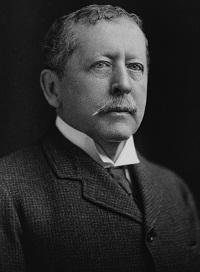 Thomas Bailey Aldrich
Thomas Bailey Aldrich
1836-1907
Thomas Bailey Aldrich (November 11, 1836-March 19, 1907) was an American poet, novelist, travel writer and editor.
Aldrich was born in Portsmouth, New Hampshire, on November 11, 1836. When Aldrich was a child, his father moved to New Orleans. After 10 years, Aldrich was sent back to Portsmouth to prepare for college. This period of his life is partly described in his semi-autobiographical novel, The Story of a Bad Boy (1870), in which “Tom Bailey” is the juvenile hero. Critics have said that this novel contains the first realistic depiction of childhood in American fiction and prepared the ground for The Adventures of Tom Sawyer.
His father’s death in 1849 compelled Aldrich to abandon the idea of college. At age 16, he entered his uncle’s business office in New York in 1852. Here he soon became a constant contributor to the newspapers and magazines. Aldrich quickly befriended other young poets, artists and wits of the metropolitan bohemia of the early 1860s. From 1856 to 1859, Aldrich was on the staff of The Home Journal, then edited by Nathaniel Parker Willis. During the Civil War, he was the editor of The New York Illustrated News.
In 1865, Aldrich returned to New England, where he was editor in Boston for 10 years for Ticknor and Fields – then at the height of their prestige – of the eclectic weekly, Every Saturday. It was discontinued in 1875. From 1881 to 1890, Aldrich was editor of the important Atlantic Monthly.
Meanwhile, Aldrich continued his private writing, both in prose and verse. His talent was many-sided. He was well-known for his form in poetry. His successive volumes of verse, chiefly The Ballad of Babie Bell (1856), Pampinea, and Other Poems (1861), Cloth of Gold (1874), Flower and Thorn (1876), Friar Jerome’s Beautiful Book (1881), Mercedes and Later Lyrics (1883), Wyndham Towers (1889) and the collected editions of 1865, 1882, 1897 and 1900, showed him to be a poet of lyrical skill and light touch. Critics believed him to show the influence of Robert Herrick.
Beginning with the collection of stories entitled Marjorie Daw and Other People (1873), Aldrich wrote works of realism and quiet humor. His novels, Prudence Palfrey (1874), The Queen of Sheba (1877) and The Stillwater Tragedy (1880) had more dramatic action. The first portrayed Portsmouth with the affectionate touch shown in the shorter humorous tale, A Rivermouth Romance (1877). In An Old Town by the Sea (1893), Aldrich commemorated his birthplace again. Travel and description are the theme of From Ponkapog to Pesth (1883).
Aldrich died at Boston on March 19, 1907. His last words were recorded as, “In spite of it all, I am going to sleep; put out the lights.”
Source: http://en.wikipedia.org/wiki/Thomas_Bailey_Aldrich
 Bibliography
Bibliography
Press your browser’s BACK button to return to the previous page.
 Meena Alexander
Meena Alexander
1951-2018
Meena Alexander (born 1951) was an internationally acclaimed poet, scholar and writer. Born in Allahabad, India, and raised in India and Sudan, Alexander lived and worked in New York City, where she was Distinguished Professor of English at Hunter College in the MFA program in Creative Writing and at the CUNY Graduate Center in the Ph.D program in English. She was the author of numerous collections of poetry, literary memoirs, essays and works of fiction and literary criticism.
Alexander was born into a Syrian Christian family from Kerala, South India. She lived in Allahabad and Kerala until she was almost five when her father’s work – as a scientist for the Indian government – took the family to Khartoum in newly independent Sudan. In 1964, when she was only 13, Alexander enrolled in Khartoum University, where she studied English and French literature. There she wrote her first poems, which were translated into Arabic and published in a local newspaper. After graduating with a B.A. Honors from Khartoum University in 1969, she moved to England and began doctoral study at Nottingham University. She earned a Ph.D in English in 1973 at the age of 22, her dissertation in Romantic literature later developing and published as The Poetic Self.
She then moved to India and taught at several universities, including the University of Delhi and the University of Hyderabad. During the five years she lived in India she published her first three books of poetry: The Bird’s Bright Ring (1976), I Root My Name (1977) and Without Place (1978).
In 1980, she moved to New York City and became an assistant professor at Fordham University, where she remained until 1987 when she became an assistant professor in the English Department at Hunter College, the City University of New York (CUNY). Two years later she joined the graduate faculty of the Ph.D program in English at the CUNY Graduate Center. In 1992 she was made full professor of English and Women’s Studies. She was appointed Distinguished Professor of English in 1999 and taught in the Ph.D program at the Graduate Center and the MFA program at Hunter College. Over the years she also taught poetry in the Writing Division in the School of the Arts at Columbia University. Alexander was a prolific author, publishing six more volumes of poetry, two books of literary criticism, two books of lyric essays, two novels and a memoir.
She died in New York on 21 November 2018, at the age of 67, from undisclosed causes, although according to her husband she died of endometrial serous cancer.
Source: http://en.wikipedia.org/wiki/Meena_Alexander
 Bibliography
Bibliography
Press your browser’s BACK button to return to the previous page.
 Sherman Alexie
Sherman Alexie
1966-
Sherman Joseph Alexie Jr. (born October 7, 1966) is a writer, poet, filmmaker and occasional comedian. Much of his writing draws on his experiences as a Native American. He lives in Seattle, Washington.
Two of Alexie’s best known works are The Lone Ranger and Tonto Fistfight in Heaven (1994), a book of short stories, and Smoke Signals, a film. The Absolutely True Diary of a Part-Time Indian is a semi-autobiographical novel for young adults that won the 2007 National Book Award for Young People’s Literature.
Sherman Alexie was born in the Spokane Indian Reservation in Wellpinit, Washington. He was born with hydrocephalus, which caused him to suffer from seizures throughout his childhood. Alexie made the conscious decision to leave his reservation and attend Reardan High School in Reardan, where he knew he would receive a better education.
In 1985, Alexie enrolled at Gonzaga University on a scholarship. In 1987, he transferred to Washington State University (WSU), where he fell under the influence of Alexander Kuo. Kuo inspired Alexie to write poetry and, soon after graduating, Alexie published his first collection of poems, The Business of Fancy Dancing, through Hanging Loose Press.
In 2005, Alexie became a founding Board Member of Longhouse Media, a nonprofit organization that is committed to teaching filmmaking skills to Native American youth, and to use media for cultural expression and social change. Alexie has long supported youth programs and initiatives dedicated to uplifting at-risk Native youth.
Source: http://en.wikipedia.org/wiki/Sherman_Alexie
 Bibliography
Bibliography
Press your browser’s BACK button to return to the previous page.
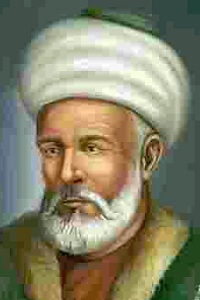 Abu Nasr Al-Farabi
Abu Nasr Al-Farabi
c. 872-c. 950
Al-Farabi, known in the West as Alpharabius (c. 872 in Farab-between December 14, 950 and January 12, 951 in Damascus), was a scientist and philosopher of the Islamic world. He was also a cosmologist, logician and musician.
The existing variations in the basic accounts of al-Farabi’s origins and pedigree indicate that they were not recorded during his lifetime or soon thereafter by anyone with concrete information, but were based on hearsay or guesses. The sources for his life are scant, which makes the reconstruction of his biography beyond a mere outline nearly impossible. The earliest and more reliable sources, i.e., those composed before the 6th-12th centuries, that are extant today are so few as to indicate that no one among Farabi’s successors and their followers, or even unrelated scholars, undertook to write his full biography, a neglect that has to be taken into consideration in assessing his immediate impact. The sources prior to the 6th-12th centuries consist of an autobiographical passage by Farabi, preserved by Ibn Abi Usaibi’a. In this passage, Farabi traces the transmission of the instruction of logic and philosophy from antiquity to his days. Reports also exist by Al-Masudi, Ibn al-Nadim and Ibn Hawqal as well as by Said Al-Andalusi (d. 1070), who devoted a biography to him.
When major Arabic biographers decided to write comprehensive entries on Farabi in the 6th-7th/12th-13th centuries, there was very little specific information on hand; this allowed for their acceptance of invented stories about his life, which range from benign extrapolation on the basis of some known details to tendentious reconstructions and legends. The sources from the 6th-12th centuries and later consist essentially of three biographical entries, all other extant reports on Farabi being either dependent on them or even later fabrications.
From incidental accounts it is known that he spent significant time in Baghdad with Christian scholars, including the cleric Yuhanna ibn Haylan, Yahya ibn Adi and Abu Ishaq Ibrahim al-Baghdadi. He later spent time in Damascus, Syria and Egypt before returning to Damascus, where he died in 950-51.
Source: http://en.wikipedia.org/wiki/Al-Farabi
 Bibliography
Bibliography
Press your browser’s BACK button to return to the previous page.
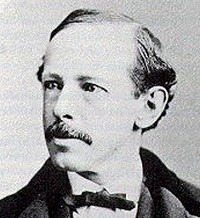 Horatio Alger
Horatio Alger
1832-1899
Horatio Alger Jr. (January 13, 1832-July 18, 1899) was a prolific 19th century American author, best known for his many formulaic juvenile novels about impoverished boys and their rise from humble backgrounds to lives of middle-class security and comfort through hard work, determination, courage and honesty. He initially wrote and published for adults, but a friendship with boys’ author William Taylor Adams led him to writing for the young. He published for years in Adams’ Student and Schoolmate, a children’s magazine of moral writings. His lifelong theme of rags to respectability had a profound impact on America in the Gilded Age.
Alger was born in Chelsea, Massachusetts, in 1832, and entered Harvard College at age 16. At 17 he became a professional writer with the sale of a few literary pieces to a Boston magazine. Following graduation, he worked briefly as an assistant editor for a Boston magazine before teaching in New England boys’ schools for a few years. He graduated from Harvard Divinity School in 1860, wrote in support of the Union cause during the American Civil War and accepted a ministerial post with a Unitarian church in Brewster, Massachusetts, in 1864. He left the church in 1866 following an internal investigation regarding sexual misconduct involving two teenage boys of the parish. He denied nothing and relocated to New York City.
Between 1864 and 1866, Alger published his first boys’ books: Frank’s Campaign (1864), Paul Prescott’s Charge (1865) and Charlie Codman’s Cruise (1866). His literary niche was made secure in 1868 with his fourth boys’ book, Ragged Dick, the story of a poor bootblack’s rise to middle-class respectability. The book was a great success. His many boys’ books that followed were essentially variations on Ragged Dick and featured a cast of stock characters – the valiant youth, the noble mysterious stranger, the snobbish youth and the evil squire.
In the 1870s, Alger took a trip to California to gather material for future books, but the trip had little influence on his writing. In the last two decades of the 19th century, the quality of Alger’s books deteriorated and his boys’ works became nothing more than reruns of the plots and themes of his past. The times had changed, boys expected more and a streak of violence entered Alger’s work.
Alger attended the theater and Harvard reunions, read the literary magazines and wrote a poem at Longfellow’s death in 1892. His last novel for adults, The Disagreeable Woman, was published under the pseudonym Julian Starr. He took pleasure in the successes of the boys he had informally adopted over the years, retained his interest in reform, accepted speaking engagements and read portions of Ragged Dick to boys’ assemblies.
In the last two years of his life he suffered from bronchitis and asthma, and died on July 18, 1899. His death was barely noticed by the newspapers.
Source: http://en.wikipedia.org/wiki/Horatio_Alger,_Jr.
 Bibliography
Bibliography
Press your browser’s BACK button to return to the previous page.
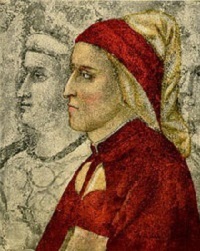 Dante Alighieri
Dante Alighieri
1265-1321
Dante’s central work, The Commedia (The Divine Comedy), is considered the greatest literary work composed in the Italian language and a masterpiece of world literature.
Born into a Guelph family of decayed nobility, Dante moved in patrician society. He was a member of the Florentine cavalry that routed the Ghibellines at Campaldino in 1289. The next year, after the death (1290) of Beatrice, the woman he loved, he plunged into intense study of classical philosophy and Provenacal poetry. This woman, thought to have been Beatrice Portinari, was Dante’s acknowledged source of spiritual inspiration.
Dante married Gemma Donati, had three children and was active (1295-1300) as councilman, elector and prior of Florence. In the complex politics of Florence, he found himself increasingly opposed to the temporal power of Pope Boniface VIII and he eventually allied himself with the White Guelphs. After the victory of the Black Guelphs he was dispossessed and banished (1302). Exile made Dante a citizen of all Italy; he served various princes but supported Holy Roman Emperor Henry VII as the potential savior of a united Italy. He died at the court of Guido da Polenta in Ravenna, where he is buried.
Dante’s reputation as the outstanding figure of Italian letters rests mainly on The Divine Comedy, a long vernacular poem in 100 cantos (more than 14,000 lines) composed during his exile. Dante entitled it Commedia; the adjective “Divina” was added in the 16th century. It recounts the tale of the poet’s journey through Hell, Purgatory and Heaven, and is divided accordingly into three parts. In Hell and Purgatory Dante is guided by Virgil, through Heaven, by Beatrice, for whom the poem is a memorial. The work is written in terza rima, a complex verse form in pentameter, with interlocking triads rhyming aba, bcb, cdc, etc.
A magnificent synthesis of the medieval outlook, The Divine Comedy pictures a changeless universe ordered by God; its allegorical theme is the gradual revelation of God to the pilgrim. It is also a religious dialogue on the gradations of earthly sin and piety as well as on such topics as predestination and classical philosophy. The symbolism is complex yet highly rational; the verse is musical and the entire work is one of great imagination. Through his masterpiece Dante established Tuscan as the literary language of Italy, surpassed all previous Italian writers and gave rise to a vast literature.
Dante’s works also include La vita nuova (The New Life, c. 1292), a collection of prose and lyrics celebrating Beatrice and illustrating his idealistic concept of love; The Convivio (c. 1304), an encyclopedic allegory praising both love and science; De monarchia, a treatise on the need for kingly dominance in secular affairs; and De vulgare eloquentia, on rules for the Italian vernacular. In addition, he wrote numerous lyrics, eclogues and epistles.
Source: http://www.ccel.org/d/dante/
 Bibliography
Bibliography
Press your browser’s BACK button to return to the previous page.
 Woody Allen
Woody Allen
1935-
Woody Allen was born December 1, 1935 in Brooklyn, New York. As a young boy he became intrigued with magic tricks and playing the clarinet, two hobbies that he continues today.
He broke into show business at age 15 when he started writing jokes for a local paper, receiving $200 a week. He later moved on to write jokes for talk shows but felt that his jokes were being wasted. His agents, Charles Joffe and Jack Rollins, convinced him to start doing stand-up and telling his own jokes. Reluctantly he agreed and, although he initially performed with such fear of the audience that he would cover his ears when they applauded his jokes, he eventually became very successful at stand-up.
After performing on stage for a few years, he was approached to write a script for Warren Beatty to star in, What’s New Pussycat?, and would also have a moderate role as a character in the film. As production was ongoing for the film, Allen gave himself more and better lines and left Beatty with less compelling dialogue. Beatty inevitably quit the project and was replaced by Peter Sellers, who demanded all the best lines and screen time. It was from this experience that Allen realized that he could not work on a film without complete control over its production.
Allen’s theoretical directorial debut was in What’s Up, Tiger Lily?, a Japanese spy flick that he dubbed over with his own comedic dialogue about spies searching for the secret recipe for egg salad. His real directorial debut came the next year in the mockumentary, Take the Money and Run. He has written, directed and, more often than not, starred in about a film a year ever since while simultaneously writing more than a dozen plays and several books of comedy.
While best known for his romantic comedies, Annie Hall (1977) and Manhattan (1979), Allen has made many transitions in his films throughout the years, from his “early, funny ones” of Bananas, Love and Death and Everything You Always Wanted to Know about Sex but Were Afraid to Ask, to his more storied and romantic comedies of Annie Hall, Manhattan and Hannah and Her Sisters, to the Bergman-esque films of Stardust Memories and Interiors, then on to the more recent but varied works of Crimes and Misdemeanors, Husbands and Wives, Mighty Aphrodite, Celebrity and Deconstructing Harry, to films that vary from the light comedy of Scoop to the self-destructive darkness of Match Point and, most recently, to the cinematically beautiful tale of Vicky Cristina Barcelona.
Source: http://www.imdb.com/name/nm0000095/bio
 Bibliography
Bibliography
Press your browser’s BACK button to return to the previous page.
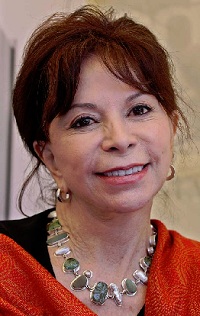 Isabel Allende
Isabel Allende
1942-
Isabel Allende Llona (born in Lima, Peru, on August 2, 1942) is a Chilean writer with American citizenship. Allende, whose works sometimes contain aspects of the “magic realist” tradition, is famous for novels such as The House of the Spirits (La casa de los espiritus, 1982) and City of the Beasts (La ciudad de las bestias, 2002), which have been commercially successful.
Allende’s novels are often based upon her personal experience and pay homage to the lives of women while weaving together elements of myth and realism. She has lectured and toured many American colleges to teach literature. Fluent in English as a second language, Allende was granted American citizenship in 2003 and has lived in California with her American husband since 1989.
Source: http://en.wikipedia.org/wiki/Isabel_Allende
 Bibliography
Bibliography
Press your browser’s BACK button to return to the previous page.
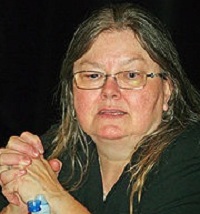 Dorothy Allison
Dorothy Allison
1949-
Dorothy E. Allison (born April 11, 1949) is an American writer, speaker and member of the Fellowship of Southern Writers.
Allison was born in Greenville, South Carolina, to Ruth Gibson Allison, who was 15 at the time. The family moved to central Florida to escape debt. Allison had witnessed her family members die because of the extreme poverty. She was the first person in her family to graduate from high school.
In the early 1970s, Allison attended Florida Presbyterian College (now Eckerd College) on a National Merit scholarship. While in college, she joined the women’s movement by way of a feminist collective. After graduating with a B.A. in anthropology, she did graduate studies in anthropology at Florida State University.
In 1979, she moved to New York City, where she began classes at The New School and received her M.A. in urban anthropology in 1981. She taught college courses, served as a guest lecturer and contributed to publications like The Village Voice, The New York Native and The Voice Literary Supplement.
In 1988, Allison published Trash: Short Stories, a collection of semi-autobiographical short stories that won her two Lambda Literary Awards.
Allison’s first novel, the semi-autobiographical Bastard Out of Carolina, was published in 1992 and was one of five finalists for the 1992 National Book Award. Cavedweller, her second novel, was published in 1998 and became a New York Times bestseller. It won the 1998 Lambda Literary Award for fiction and was a finalist for the Lillian Smith Prize.
Source: http://en.wikipedia.org/wiki/Dorothy_Allison
 Bibliography
Bibliography
Press your browser’s BACK button to return to the previous page.
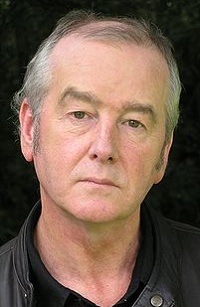 David Almond
David Almond
1951-
David Almond (born May 15, 1951) is a British children’s writer who has written several novels, each one to critical acclaim.
Almond was born and raised in Felling and Newcastle in post-industrial northeast England and educated at the University of East Anglia. When he was young, he found his love of writing when some short stories of his were published in a local magazine. He started out as an author of adult fiction (self-publishing 500 copies of his first novel, Sleepless Nights) before finding his niche writing literature for young adults.
His first children’s novel, Skellig (1998), set in Newcastle, won the Whitbread Children’s Novel of the Year Award and also the Carnegie Medal. It has been adapted into a stage play, film and opera.
His subsequent novels are: Kit’s Wilderness (1999), Heaven Eyes (2000), Secret Heart (2001), The Fire Eaters (2003), which won the 2003 Whitbread Awards, Clay (2005), Raven Summer (2008) and The Savage (2008), a children’s book whose subject matter is written more toward young adults and adults. His first play aimed at adolescents, Wild Girl, Wild Boy, toured in 2001 and was published in 2002.
His works are highly philosophical and thus appeal to children and adults alike. Recurring themes throughout include the complex relationships between apparent opposites (such as life and death, reality and fiction, past and future); forms of education; growing up and adapting to change; the nature of “the self.” He has been greatly influenced by the works of the English Romantic poet William Blake.
He is an author often suggested on National Curriculum reading lists in the United Kingdom and has attracted the attention of academics who specialize in the study of children’s literature. In 2010 he was awarded the prestigious Hans Christian Andersen prize for lifetime achievement in children’s writing.
Almond currently lives with his family in Northumberland, England. Since 2007 he has been a Visiting Professor in Creative Writing at Nottingham Trent University. In November 2008 he was a guest on Private Passions, the biographical music discussion program on BBC Radio 3.
His short story, “The Knife Sharpener,” appeared in The Sunday Times on January 25, 2009 and The Savage was given away free as part of the Liverpool Reads event.
Source: http://en.wikipedia.org/wiki/David_Almond
 Bibliography
Bibliography
Press your browser’s BACK button to return to the previous page.
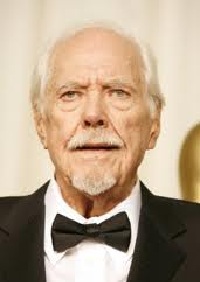 Robert Altman
Robert Altman
1925-2006
Robert Bernard Altman (February 20, 1925-November 20, 2006) was an American film director and screenwriter known for making films that are highly naturalistic but with a stylized perspective. In 2006, the Academy of Motion Picture Arts and Sciences recognized his body of work with an honorary Academy Award.
His films MASH (1970), McCabe and Mrs. Miller (1971) and Nashville (1975) have been selected for preservation in the United States National Film Registry.
Altman was born in Kansas City, Missouri, the son of Helen (nee Matthews), a Mayflower descendant from Nebraska, and Bernard Clement Altman, a wealthy insurance salesman and amateur gambler, who came from an upper-class family. He was educated at Jesuit schools, including Rockhurst High School, in Kansas City. He graduated from Wentworth Military Academy in Lexington, Missouri, in 1943.
In 1943, Altman joined the United States Army Air Forces at the age of 18. During World War II, Altman flew more than 50 bombing missions as a crewman on a B-24 Liberator with the 307th Bomb Group in Borneo and the Dutch East Indies.
Upon his discharge in 1946, Altman moved to California. He worked in publicity for a company that had invented a tattooing machine to identify dogs. He entered filmmaking on a whim, selling a script to RKO for the 1948 film, Bodyguard, which he co-wrote with George W. George. Altman’s immediate success encouraged him to move to New York City, where he attempted to forge a career as a writer. Having enjoyed little success, in 1949 he returned to Kansas City and accepted a job as a director and writer of industrial films for the Calvin Company.
He directed some 65 industrial films and documentaries before being hired by a local businessman in 1956 to write and direct a feature film in Kansas City on juvenile delinquency. The film, titled The Delinquents, made for $60,000, was purchased by United Artists for $150,000, and released in 1957. While primitive, this teen exploitation film contained the foundations of Altman’s later work in its use of casual, naturalistic dialogue. With its success, Altman moved from Kansas City to California for the last time. He co-directed The James Dean Story (1957), a documentary rushed into theaters to capitalize on the actor’s recent death and marketed to his emerging cult following.
Source: http://en.wikipedia.org/wiki/Robert_Altman
 Bibliography
Bibliography
Press your browser’s BACK button to return to the previous page.
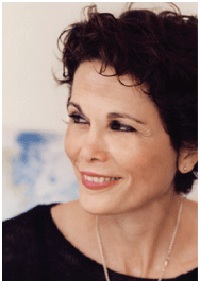 Julia Alvarez
Julia Alvarez
1950-
Julia Alvarez (born March 27, 1950) is a Dominican-American poet, novelist and essayist. Born in New York of Dominican descent, she spent the first 10 years of her childhood in the Dominican Republic, until her father’s involvement in a political rebellion forced her family to flee the country.
Alvarez rose to prominence with the novels How the Garcia Girls Lost Their Accents (1991), In the Time of the Butterflies (1994) and Yo! (1997). Her publications as a poet include Homecoming (1984) and The Woman I Kept to Myself (2004), and as an essayist the autobiographical compilation, Something to Declare (1998).
Many of Alvarez’s works are influenced by her experiences as a Dominican in the United States and focus heavily on issues of assimilation and identity. Her cultural upbringing as both a Dominican and an American is evident in the combination of personal and political tone in her writing. She is known for works that examine cultural expectations of women both in the Dominican Republic and the United States, and for rigorous investigations of cultural stereotypes. In recent years, Alvarez has expanded her subject matter with works such as In the Name of Salome (2000), a novel with Cuban rather than solely Dominican characters and fictionalized versions of historical figures.
In addition to her successful writing career, Alvarez is the current writer-in-residence at Middlebury College.
Source: http://en.wikipedia.org/wiki/Julia_Alvarez
 Bibliography
Bibliography
Press your browser’s BACK button to return to the previous page.
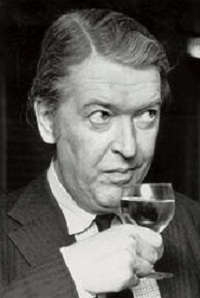 Kingsley Amis
Kingsley Amis
1922-1995
Sir Kingsley William Amis (April 16, 1922-October 22, 1995) was an English novelist, poet, critic and teacher. He wrote more than 20 novels, six volumes of poetry, a memoir, various short stories, radio and television scripts, along with works of social and literary criticism.
Amis was born in Clapham, south London, the son of William Robert Amis, a mustard manufacturer’s clerk. He was educated at the City of London School and in April 1941 was admitted to St. John’s College, Oxford, where he read English. After only a year, in July 1942, he was called up for national service. After serving in the Royal Corps of Signals in World War II, Amis returned to Oxford in October 1945 to complete his degree. Although he worked hard and earned a 1947 first in English, he had by then decided to give much of his time to writing.
He became a lecturer in English at the University of Wales Swansea (1949-1961). In 1954 Amis’ first novel, Lucky Jim, was published to great acclaim.
During 1958-1959, he made the first of two visits to the United States, where he was Visiting Fellow in Creative Writing at Princeton University and a visiting lecturer in other northeastern universities. On returning to Britain, he fell into a rut and began looking for another post. After 13 years at Swansea, Amis became a fellow of Peterhouse, Cambridge in 1961. He regretted the move within a year, finding Cambridge an academic and social disappointment and resigned in 1963, intent on moving to Majorca; he went no farther than London.
Amis was knighted in 1990. In August 1995, he fell, suffering a suspected stroke. After apparently recovering, he worsened, was re-admitted to hospital and died on October 22, 1995 at St. Pancras Hospital, London.
Source: http://en.wikipedia.org/wiki/Kingsley_Amis
 Bibliography
Bibliography
Press your browser’s BACK button to return to the previous page.
 Martin Amis
Martin Amis
1949-2023
Martin Louis Amis (born August 25, 1949) was a British novelist, the author of many novels including Money (1984) and London Fields (1989). He was the Professor of Creative Writing at the Centre for New Writing at the University of Manchester, but stepped down at the end of the 2010-11 academic year.
Amis’ raw material is what he saw as the absurdity of the postmodern condition and the excesses of late-capitalist Western society with its grotesque caricatures. He has thus been portrayed as the undisputed master of what The New York Times called “the new unpleasantness.”
Amis was born in Swansea, South Wales. His father, Sir Kingsley Amis, was the son of a mustard manufacturer’s clerk from Clapham; his mother, Hilary “Hilly” Bardwell, was the daughter of a Ministry of Agriculture civil servant. He attended a number of schools in the 1950s and 1960s, including the Bishop Gore School (Swansea Grammar School) and Cambridgeshire High School for Boys – where he was described by one headmaster as “unusually unpromising.”
He read nothing but comic books until his stepmother, the novelist Elizabeth Jane Howard, introduced him to Jane Austen, whom he often named as his earliest influence. After teenage years spent in flowery shirts and a short spell at Westminster School while living in Hampstead, he graduated from Exeter College, Oxford, with a “Congratulatory” First in English.
After Oxford, he found an entry-level job at The Times Literary Supplement and at age 27 became literary editor of The New Statesman.
A lifelong smoker, Amis died from esophageal cancer at his house in Florida on May 19, 2023.
Source: http://en.wikipedia.org/wiki/Martin_Amis
 Bibliography
Bibliography
Press your browser’s BACK button to return to the previous page.
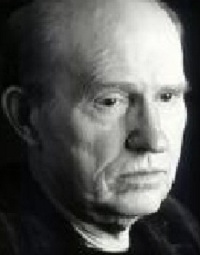 A.R. Ammons
A.R. Ammons
1926-2001
Archie Randolph Ammons was born outside Whiteville, North Carolina, on February 18, 1926. He started writing poetry aboard a U.S. Navy destroyer escort in the South Pacific. After completing service in World War II, he attended Wake Forest University and the University of California at Berkeley.
He went on to work as an elementary school principal, a real estate salesman, an editor and an executive in his father’s biological glass company before he began teaching at Cornell University in 1964.
Ammons published his first book of poems, Ommateum: With Doxology, in 1955. He went on to publish nearly 30 collections, including Bosh and Flapdoodle (2005); Glare (1997); Garbage (1993), which won the National Book Award and the Library of Congress’ Rebekah Johnson Bobbitt National Prize for Poetry; A Coast of Trees (1981), which received the National Book Critics Circle Award for Poetry; Sphere (1974), which received the Bollingen Prize; and Collected Poems, 1951-1971 (1972), which won the National Book Award.
His honors included the Academy’s Wallace Stevens Award, the Poetry Society of America’s Robert Frost Medal, the Ruth Lilly Prize and fellowships from the Guggenheim Foundation, the MacArthur Foundation and the American Academy of Arts and Letters.
He lived in Ithaca, New York, where he was Goldwin Smith Professor of Poetry at Cornell University until his retirement in 1998.
Ammons died on February 25, 2001.
Source: http://www.occupypoetry.net/biography/a_r_ammons
 Bibliography
Bibliography
Press your browser’s BACK button to return to the previous page.
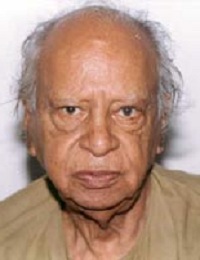 Mulk Raj Anand
Mulk Raj Anand
1905-2004
Mulk Raj Anand (December 12, 1905-September 28, 2004) was an Indian writer in English, notable for his depiction of the lives of the poorer castes in traditional Indian society. One of the pioneers of Indo-Anglian fiction, he, together with R.K. Narayan, was one of the first India-based writers in English to gain an international readership.
Born in Peshawar, he studied at Khalsa College, Amritsar, before moving to England, where he attended University College, London, as an undergraduate and later Cambridge University, graduating with a Ph.D in 1929. During this time he forged friendships with members of the Bloomsbury Group. He spent some time in Geneva, lecturing at the League of Nations’ School of Intellectual Cooperation.
Anand’s literary career was launched by family tragedy, instigated by the rigidity of the caste system. His first prose essay was a response to the suicide of an aunt, who had been excommunicated by his family for sharing a meal with a Muslim. His first main novel, Untouchable, published in 1935, was a chilling expose of the day-to-day life of a member of India’s untouchable caste.
Inevitably, Anand, who spent half of his time in London and half in India, was drawn to the Indian independence movement. At the same time, he also supported freedom elsewhere around the globe and even travelled to Spain to volunteer in the Spanish Civil War. He spent World War II working as a scriptwriter for the BBC in London.
Anand returned to India in 1946 and continued with his prodigious literary output there. His work includes poetry and essays on a wide range of subjects, as well as autobiographies and novels. Prominent among his novels are: The Village (1939), Across the Black Waters (1940), The Sword and the Sickle (1942), all written in England; Coolie (1945) and The Private Life of an Indian Prince (1953), perhaps the most important of his works written in India. He also founded a literary magazine, Marg, and taught in various universities.
In 1950, Anand embarked on a project to write a seven-part autobiography, beginning with Seven Summers. One part, Morning Face (1968), won him the Sahitya Akademi Award.
He died in Pune.
Source: http://en.wikipedia.org/wiki/Mulk_Raj_Anand
 Bibliography
Bibliography
Press your browser’s BACK button to return to the previous page.
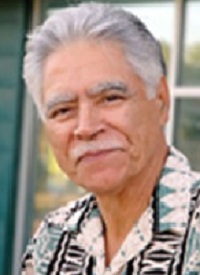 Rudolfo Anaya
Rudolfo Anaya
1937-2020
Rudolfo Anaya (October 30, 1937-June 28, 2020) was a Mexican-American author. Best known for his 1972 novel, Bless Me, Ultima, Anaya was considered one of the founders of the canon of contemporary Chicano literature.
Anaya was born in the rural village of Pastura, New Mexico, to Martin and Rafaelita Anaya. His father came from a family of cattle workers and sheepherders, and his mother’s family were farmers. Anaya was the fifth of their seven children together; he also had three half-siblings from his parents’ previous marriages. When Anaya was a small child, his family moved to Santa Rosa, New Mexico. In 1952, they relocated to Albuquerque, New Mexico, where they lived in the Barelas neighborhood. Spanish was spoken at home and Anaya did not learn English until he started school.
When he was a teenager, Anaya suffered a diving accident while swimming with friends in an irrigation ditch and broke two vertebrae in his neck. At first rendered paralyzed by the accident, he eventually made a substantial recovery, learning to walk again though never becoming entirely free of pain. In 1956, Anaya graduated from an Albuquerque high school. He then attended business school for two years, but he found it unfulfilling. He transferred to the University of New Mexico, where he graduated in 1963 with a degree in English. Anaya worked as a public school teacher in Albuquerque from 1963 to 1970. In 1966, he married Patricia Lawless, who would serve as his editor. She encouraged him to pursue his literary endeavors and, over a period of seven years, he completed his first novel, Bless Me, Ultima. Dozens of publishing houses rejected the novel. Finally, in 1972, a group of editors at El Grito, a Chicano quarterly, accepted the book. Bless Me, Ultima went on to win the prestigious Premio Quinto Sol award and is now considered a classic Chicano work. It was chosen as one of the books of The Big Read, a community-reading program sponsored by the National Endowment for the Arts. It is also one of the literary works in 2009 of the United States Academic Decathlon. Anaya followed Bless Me, Ultima with Heart of Aztlan (1978) and Tortuga (1979), forming a trilogy.
In 1974, Anaya accepted a position as an associate professor at the University of New Mexico. He became a full professor in the Department of English Language and Literature in 1988. After retiring from the University in 1993 as a Professor Emeritus, Anaya continued to write, completing, among other works, the novel Albuquerque and the Sonny Baca quartet of detective novels. He also published a number of books for children and young adults.
He died on June 28, 2020, at his home in Albuquerque. He was 82 and had been suffering from a long illness in the time leading up to his death.
Source: http://en.wikipedia.org/wiki/Rudolfo_Anaya
 Bibliography
Bibliography
Press your browser’s BACK button to return to the previous page.
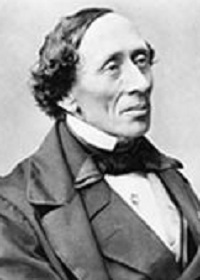 Hans Christian Andersen
Hans Christian Andersen
1805-1875
Hans Christian Andersen (April 2, 1805-August 4, 1875) was a Danish author and poet noted for his children’s stories. These include “The Steadfast Tin Soldier,” “The Snow Queen,” “The Little Mermaid,” “Thumbelina,” “The Little Match Girl” and “The Ugly Duckling.” During his lifetime he was acclaimed for having delighted children worldwide and was feted by royalty.
Andersen was born in the town of Odense, Denmark, on Tuesday, April 2, 1805. “Hans” and “Christian” are traditional Danish names. At 14, he moved to Copenhagen to seek employment as an actor. Having an excellent soprano voice, he was accepted into the Royal Danish Theatre, but his voice soon changed. A colleague at the theatre told him that he considered Andersen a poet. Taking the suggestion seriously, he began to focus on writing.
In 1829, Andersen enjoyed considerable success with a short story, “A Journey on Foot from Holmen’s Canal to the East Point of Amager.” He also published a comedy and a collection of poems that season. Though he made little progress writing and publishing immediately thereafter, in 1833 he received a small traveling grant from the king, enabling him to set out on the first of his many journeys through Europe. At Jura, near Le Locle, Switzerland, he wrote the story, “Agnete and the Merman.” He spent an evening in the Italian seaside village of Sestri Levante the same year, inspiring the name, “The Bay of Fables.” In October 1834, he arrived in Rome. Andersen’s first novel, The Improvisatore, was published at the beginning of 1835, becoming an instant success.
It was during 1835 that Andersen published the first installment of his immortal Fairy Tales. More stories, completing the first volume, were published in 1836 and 1837. Andersen enjoyed more success with two novels: O.T. (1836) and Only a Fiddler. His specialty book that is still known today was “The Ugly Duckling” (1837). It was in July 1839 during a visit to the island of Funen that Andersen first wrote the text of his poem, “Jeg er en Skandinav” (“I am a Scandinavian”).
In 1851, he published to wide acclaim in Sweden a volume of travel sketches. A keen traveler, Andersen published several other long travelogues: Shadow Pictures of a Journey to the Harz, Swiss Saxony, etc. etc. in the Summer of 1831. His true genius was, however, proved in the miscellany The Picture-Book without Pictures (1840). The fame of his Fairy Tales had grown steadily; a second series began in 1838 and a third in 1845. Andersen was now celebrated throughout Europe.
In the spring of 1872, Andersen fell out of bed and was severely hurt. He never fully recovered but he lived until August 4, 1875, dying of insidious causes in a house called Rolighed (literally: calmness) near Copenhagen.
Source: http://en.wikipedia.org/wiki/Hans_Christian_Andersen
 Bibliography
Bibliography
Press your browser’s BACK button to return to the previous page.
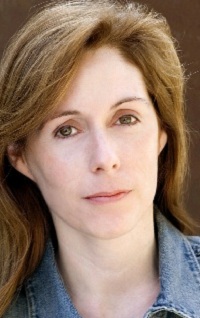 Laurie Halse Anderson
Laurie Halse Anderson
1961-
Laurie Halse Anderson (born Laurie Beth Halse on October 23, 1961) is an American author who writes for children and young adults.
Anderson was born in the northern New York town of Potsdam. Her father was a Methodist minister who wrote poetry on the side. As a girl, Anderson loved to play with his typewriter.
Anderson began her career as a freelance journalist and worked for a time at The Philadelphia Inquirer. In 1999, Farrar, Straus and Giroux published what is arguably Anderson’s most famous novel so far, Speak, which won numerous awards and was a New York Times bestseller. The novel won an array of honors for Anderson, who had already authored three picture books for younger readers.
The following year, Anderson’s Fever, 1793, a historical fiction novel set in Philadelphia during the Yellow Fever epidemic, was published. In 2002, Anderson published her next young adult novel, Catalyst.
A historical fiction picture book, Thank You, Sarah! The Woman Who Saved Thanksgiving, was also published in 2002. Thank You, Sarah received two starred reviews, several state award nominations and was named to the ALA Amelia Bloomer List and the Junior Library Guild Selection.
Anderson published Prom in 2005. Twisted was released in the spring of 2007.
In 2008, Anderson published another historical fiction book, a narrative about a teenage Revolutionary War-era slave, entitled Chains. The novel, the first in a trilogy dubbed Seeds of America, was awarded the Scott O’Dell Award for Historical Fiction. The second novel in the Seeds of America trilogy, Forge, was released in October 2010.
Anderson’s next young adult novel, Wintergirls, was released in March 2009.
Source: http://en.wikipedia.org/wiki/Laurie_Halse_Anderson
 Bibliography
Bibliography
Press your browser’s BACK button to return to the previous page.
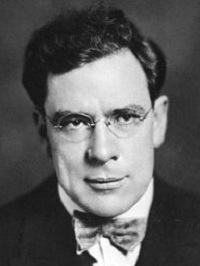 Maxwell Anderson
Maxwell Anderson
1888-1959
James Maxwell Anderson (December 15, 1888-February 28, 1959) was an American playwright, author, poet, journalist and lyricist.
Anderson was born in Atlantic, Pennsylvania, the second of eight children to William Lincoln “Link” Anderson, a Baptist minister, and Charlotte Perrimela Stephenson, both of Scots and Irish descent. His family moved to Andover, Ohio, where his father became a railroad fireman while studying to become a minister. They moved often to follow their father’s ministerial posts, and Maxwell was frequently sick, missing a great deal of school. He used his time sick in bed to read voraciously, and both his parents and Aunt Emma were storytellers, which contributed to Anderson’s love of literature.
As an undergraduate at the University of North Dakota, he waited tables and worked at the night copy desk of the Grand Forks Herald. He was active in the school’s literary and dramatic societies and obtained a B.A. in English Literature in 1911. He became the principal of a high school in Minnewaukan, North Dakota, also teaching English. He then entered Stanford University, obtaining an M.A. in English Literature in 1914. He became a high school English teacher in San Francisco and after three years he became chairman of the English department at Whittier College in 1917.
Anderson found work at The New York Globe and The New York World. In 1921, he founded The Measure: A Journal of Poetry, a magazine devoted to verse. He wrote his first play, White Desert, in 1923. Afterward he resigned from The World, launching his career as a dramatist.
Anderson wrote the screenplays of other authors’ plays and novels – Death Takes a Holiday, All Quiet on the Western Front – in addition to books of poetry and essays. His first Broadway hit was the gritty WWI comedy-drama, What Price Glory, in 1924.
The only one of his plays that he himself adapted to the screen was Joan of Lorraine, which became the film Joan of Arc (1948). Anderson was awarded the Pulitzer Prize in 1933 for his political drama, Both Your Houses, and twice received the New York Drama Critics Circle Award for Winterset and High Tor.
He enjoyed great commercial success with a series of plays set during the reign of the Tudor family. One play in particular, Anne of the Thousand Days, was a hit on the stage in 1948. Another of his Tudor plays, Elizabeth the Queen, was adapted as The Private Lives of Elizabeth and Essex (1939). Still another of his plays involving Elizabeth I, Mary of Scotland (1936), was turned into a film.
His play, Wingless Victory, was written in verse and premiered in 1936.
Source: http://en.wikipedia.org/wiki/Maxwell_Anderson